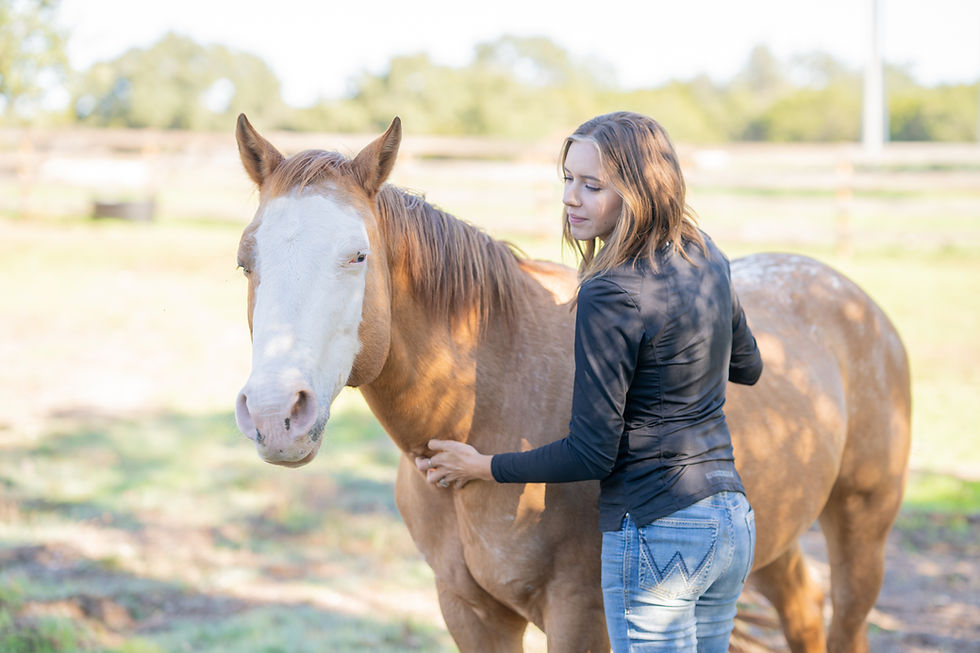Influences on Training
- Adele Shaw
- Jun 12, 2020
- 3 min read

It's important that we look at external (and internal) factors that may impact the success and ethical nature of training our horses. It's not enough to just look at mechanics, reinforcers being used, shaping plans, etc. We must consider how our horses are feeling, how they are experiencing day to day life, and whether or not they are capable of doing what it is we are asking of them.
Physically, we need to look at our horse's body as a whole. Are they well fed? Are they being fed a species appropriate diet? Is their stomach in good health and ulcer free? Are their hooves trimmed regularly and balanced? Do they have any joint pain? Does their tack fit? When did they last have a proper dental float and was it by someone qualified? What does their body condition look like weight wise? What's the natural quality of the coat? Do they have cuts and bruises? How is their vision? Hearing? I could go on forever!
But what about mental and emotional health... Are they provided with companions, room to roam and forage naturally, plenty of enrichment and forage, and a living environment void of chronic stressors? We have to pay just as close of attention to our horse's mental and emotional health as we do to their physical health. I find many equestrians will go out of their way to provide all the latest therapies and best supplements money can buy, but completely reject what's arguably most important to the horse and could potentially avoid the need for all those things.
In my experience, there is only so much training can do when a horse is struggling to cope with a diet, lifestyle, or health conditions that are causing the majority of the behavior you're wanting to work on. Often I finding biting is caused by ulcers, bucking by saddle fit, leg jerking with the farrier by arthritis or needing an adjustment, pushiness during feeding by food deprivation, weight loss by parasites or stressful living conditions, "laziness" by joint or back pain, stall pacing by isolation, rearing by fear and confinement, and on and on.
It's important as our horse's primary caregivers to do our best to be independent thinkers and be their advocate. We need to carefully weigh the pros and cons, research the information for ourselves, find the professionals we trust (who should also be doing their own research and be independent thinkers), and do the best we can with the information we have. Not everything is possible for right now, and you may be feeling a little overwhelmed by all the information out there right now, but I want you to know that this is a process and nobody expects you to change everything over night. Plus, that wouldn't be healthy for your horse either.
Integration into a herd environment from stabling life takes time and careful conditioning. Transitioning from shoes to barefoot is a process that takes time and attention. Changing your horse's diet should be done over weeks and months, not days. And finding professionals that will collaborate and work together as a team to support both you and your horse will take time to find and create.
This is a journey, a learning process, and nobody has ALL the answers. Every day I'm working to implement new information into my practices and experimenting. Sometimes money or time holds me back for awhile, but I keep it on the list and work towards it. I prioritize and implement what I can do right now and actively work towards making those other changes.
- Adele
To learn more about how I manage my horse's lifestyles, health, and mental well-being to set training up for success... sign up for the TWE Foundation Course, where you can read this article in full, PLUS so much more.




